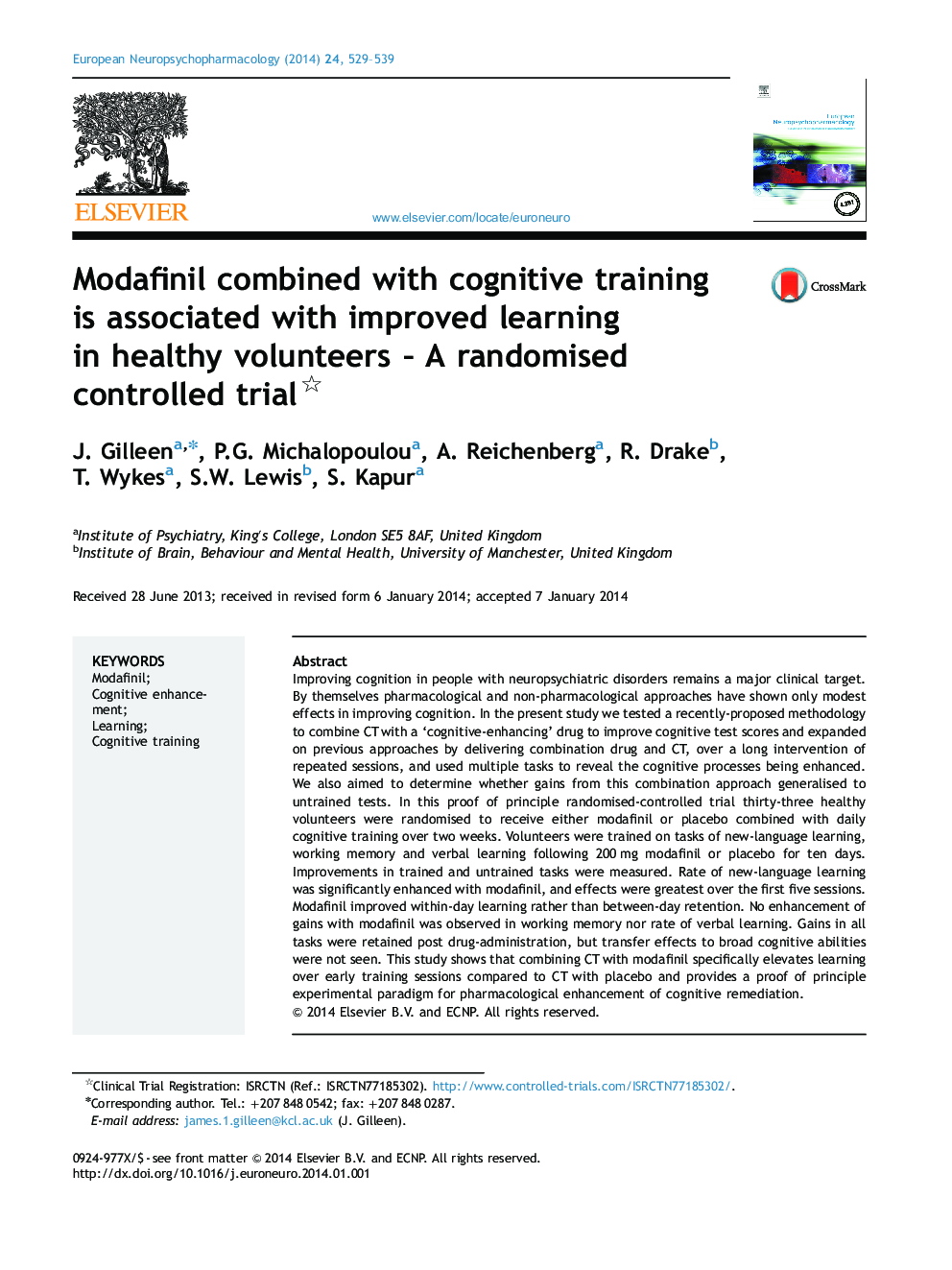| Article ID | Journal | Published Year | Pages | File Type |
|---|---|---|---|---|
| 10299251 | European Neuropsychopharmacology | 2014 | 11 Pages |
Abstract
Improving cognition in people with neuropsychiatric disorders remains a major clinical target. By themselves pharmacological and non-pharmacological approaches have shown only modest effects in improving cognition. In the present study we tested a recently-proposed methodology to combine CT with a 'cognitive-enhancing' drug to improve cognitive test scores and expanded on previous approaches by delivering combination drug and CT, over a long intervention of repeated sessions, and used multiple tasks to reveal the cognitive processes being enhanced. We also aimed to determine whether gains from this combination approach generalised to untrained tests. In this proof of principle randomised-controlled trial thirty-three healthy volunteers were randomised to receive either modafinil or placebo combined with daily cognitive training over two weeks. Volunteers were trained on tasks of new-language learning, working memory and verbal learning following 200Â mg modafinil or placebo for ten days. Improvements in trained and untrained tasks were measured. Rate of new-language learning was significantly enhanced with modafinil, and effects were greatest over the first five sessions. Modafinil improved within-day learning rather than between-day retention. No enhancement of gains with modafinil was observed in working memory nor rate of verbal learning. Gains in all tasks were retained post drug-administration, but transfer effects to broad cognitive abilities were not seen. This study shows that combining CT with modafinil specifically elevates learning over early training sessions compared to CT with placebo and provides a proof of principle experimental paradigm for pharmacological enhancement of cognitive remediation.
Related Topics
Life Sciences
Neuroscience
Biological Psychiatry
Authors
J. Gilleen, P.G. Michalopoulou, A. Reichenberg, R. Drake, T. Wykes, S.W. Lewis, S. Kapur,
